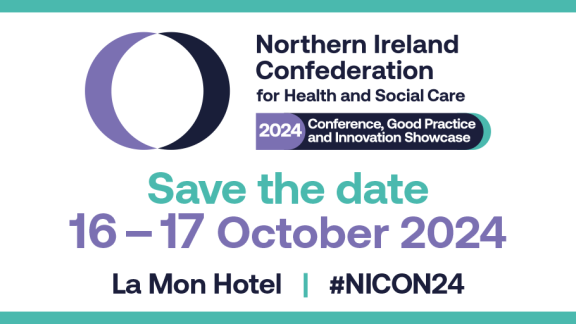The Hewitt Review is a welcome step towards NHS integration

By commissioning the Hewitt Review, the government has shown commitment towards empowering ICSs and local leaders to work together to ‘improve outcomes for their populations’. Here Matthew Taylor breaks down what this could mean for system working and integrated care.
As the chancellor outlined the government’s commitments to the NHS in his autumn statement this month, in the melee of promises on investment and workforce planning one announcement was of particular note. We learnt that the government had asked Patricia Hewitt to conduct a review of both the autonomy and accountability of the recently launched integrated care systems (ICSs). To date, the review has a vaguely defined purpose to “explore how to empower local leaders to focus on improving outcomes for their populations” — the exact terms of reference are, however, expected imminently.
This review demonstrates a commitment towards co-production of policy between the centre and system leaders
The decision is sensible and welcome. Hewitt will bring a wealth of experience, both as chairwoman of the Norfolk and Waveney ICS and from her role as health secretary in the New Labour government. More fundamentally, it is heartening that this review — coming after the one conducted by Dr Claire Fuller on the important role of primary care in the NHS — demonstrates a commitment towards co-production of policy between the centre and system leaders.
The NHS Confederation’s ICS Network, which represents all 42 integrated care systems, will feed into the review working closely not just with systems, but providers and other partners, particularly in local government. As the review proceeds, and with Steve Barclay, the health secretary, asking for an early interim report, there will be much to discuss.
Notably, the creation of integrated care systems has already started to shine a light on the very different accountability frameworks of local government and the NHS. These differ in a number of ways, and this is something the review will need to capture.
The NHS is not directly democratically accountable to local people and is much more tightly controlled and regulated through national priorities, targets and funding streams than local government. While the Care Quality Commission does have a remit to inspect and report on social care, this is only a part of what local government delivers to local communities, whereas almost everything NHS systems and providers do is subject to close central NHS scrutiny.
Local government also has greater flexibility over local spending — albeit in the context of huge cuts in central funding — and there has been a sustained commitment by central government for a number of years to devolve more power and freedom to local government principally through the mechanism of 'devo deals'.
While the focus and timing of the review is right, the devil will be in the detail
With ministers consistently talking about reducing central targets and devolving more autonomy to health systems, these contrasts may start to become less clear cut. We understand that there is growing enthusiasm for a regime of 'earned autonomy' in which greater local NHS freedom from central control is matched by delivering progress on priority areas and demonstrating local leadership capability.
Given the volatility of politics and the ministerial musical chairs of recent months, the rumours of change may seem ephemeral and just another short-lived policy fad. But the reasons for a convergence of local government and NHS systems have stronger roots. It seems that the chancellor has carried his scepticism about NHS targets into the Treasury and has got Downing Street on board.
It is also clear that the more councils and health systems work together — on issues ranging from social care, public health and driving local economies — the more visible and problematic become the differences in accountability systems, and in particular the centralised culture and structure of the NHS.
While the focus and timing of the review is right, the devil, as always, will be in the detail. For example, our integrated care system leader members have no principled objection to the Care Quality Commission having an enhanced role in inspecting and improving systems. However, they do emphasise that the inspectorate must be fit for purpose and commissioned to inspect the right things in the right ways, focusing less on retrospective blame and more on supporting improvement. The review’s recommendations will also provide a useful steer for NHS England as it evolves its new operating framework.
There is the real potential for the Hewitt Review to free up the NHS to work with its partners outside health
Greater alignment between local government and health will generate hard questions about national and local accountability, funding streams and rules, and Whitehall alignment. Indeed, it is difficult to imagine a world where central government isn’t expected to be responsible for the NHS performance measures that most matter to the public.
We do know, however, that in many health conditions on the rise — for example obesity, diabetes and mental illness — factors such as housing, employment and environment are key and there is the real potential for the Hewitt Review to free up the NHS to work with its partners outside health to develop effective local strategies to create health, not just treat it.
In July, the Health and Care Act 2022 put integrated care systems on a statutory footing. For our members, a more joined-up approach to national and local working is the next logical step.
Matthew Taylor is chief executive of the NHS Confederation. You can follow Matthew on Twitter @FRSAMatthew
First published in The Times Red Box.



